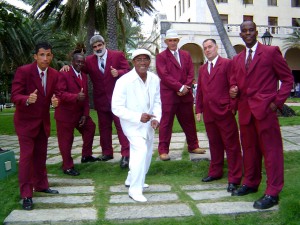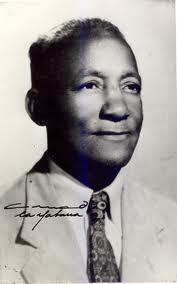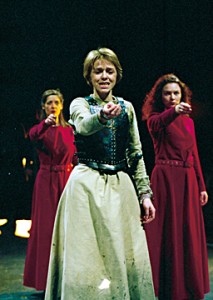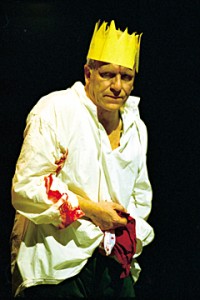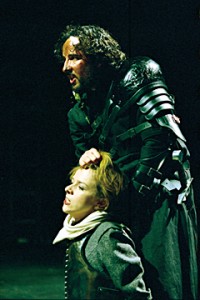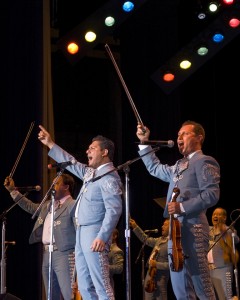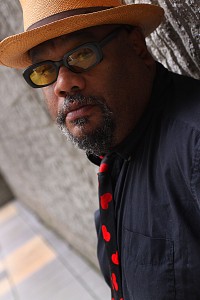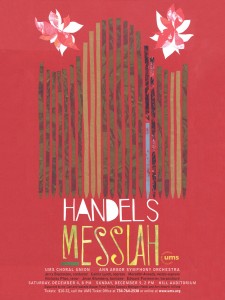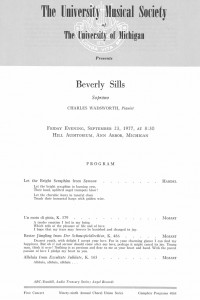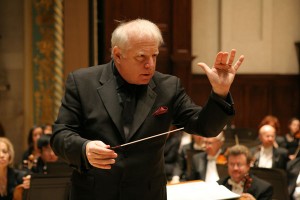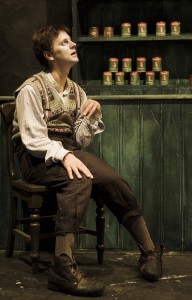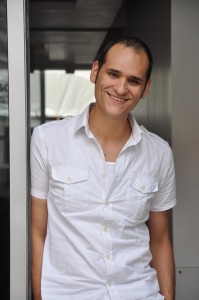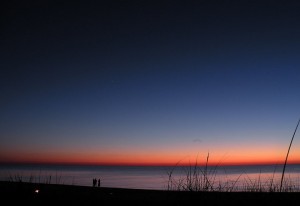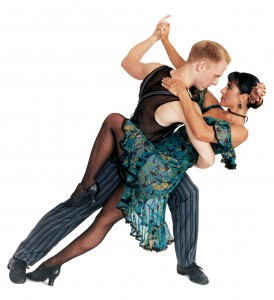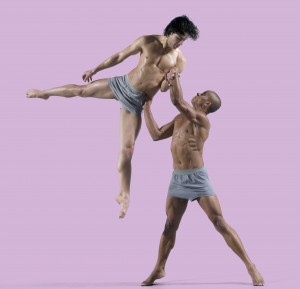Alberto Nacif on Septeto Nacional de Cuba
Of the many great Cuban musicians and orchestras to grace our stages, one that I thought I would never see is coming to Ann Arbor on Thursday, April 7th!
The Septeto Nacional de Cuba, which was founded in 1927 by Ignacio Pineiro (1888–1969), contrabass player, singer, and composer will perform the real Cuban son, the music of the Cuban countryside that took over dance halls and clubs alike in the early 1930s. This music, which is the true progenitor of Salsa and is still popular in both urban and rural settings, originated in Oriente, a province 600 miles from Havana and was a combination of African-derived instruments with Spanish verse forms and stringed instruments. The son has syncopated rhythms and catchy melodies and harmonies which make this a music to sing and dance to.
The music of Pineiro has become a part of the vocabulary of Cuban music, played lovingly by so many of the great musicians, past and present, Cuban and non-Cuban, and still fresh and vital 80 years later. The late 1920s were witness to an explosion of trios, quartets, sextets, and septets from different parts of Cuba each exploring the son, each competing for the pinnacle of expression. Pineiro named his septet “Septeto Nacional” because of the representation of musicians from all over Cuba, and quickly rose to be one of the most successful, thanks again to Pineiro’s compositions and the Septeto’s musicianship. It is no wonder then that so many young musicians are still drawn to this sublime style of music that has maintained its sepia-tone warmth along with Kodacolor excitement.
This concert will be this legendary and much-revered group’s first visit to Ann Arbor, a younger generation of young masters to bring the magic and fire of the Cuban son.
Don’t miss this!!!!
This Day in UMS History: Royal Shakespeare Company History Plays (March 10-18, 2001)
Ten years ago today, UMS audiences began a great experiment — the Royal Shakespeare Company presenting four Shakespeare History plays (Henry VI, parts i, ii, and iii, and Richard III) over the course of 27 hours with lunch and dinner breaks built in. The productions, directed by now-RSC artistic director Michael Boyd, marked the beginning of a long relationship between the University of Michigan and Ann Arbor with the RSC. Over the past decade, this partnership has included three major residencies, as well as workshopping new plays on the U-M campus. Each residency was accompanied by dozens of free educational events for students and the public-at-large.
Those who were present will no doubt fondly recall some of these images from the productions:
The three Henry VI plays were presented at 11 am, 2 pm, and 8 pm on a Saturday, with audiences returning on Sunday for the climactic production of Richard III. (There was also one mid-week cycle, which ran Tuesday, Wednesday [both matinee and evening], and Thursday.) Since that season, UMS’s theater programming has expanded significantly, with an annual commitment to presenting both live and high-definition broadcasts of international theater — including this season’s productions of Richard III and The Comedy of Errors by another British theater company, Propeller. Like the RSC, Propeller presents contemporary interpretations of Shakespeare and works with an ensemble cast; unlike the RSC, Propeller uses an all-male cast to present the Bard’s works, as would have been the case in Shakespeare’s day.
Richard III opens at the Power Center on Wednesday, March 30, and The Comedy of Errors opens the following evening. Tickets can be purchased at www.ums.org or by calling 734-764-2538.
Our Favorite Moments from the Season
It’s hard to believe the first half of the 10/11 season has already come to a close. What an incredible first half it was though for all of us on the UMS Staff! We thought it would be fun to share some of our favorite moments from these past few months, and we invite you to leave a comment sharing your favorite moment too!
“Attending the Mariachi Vargas de Tecalitlán concert solo, I sat next to a wonderful Spanish-speaking grandmother who took me under her wing and translated each and every song: ‘this is a song about love.’ Two songs later: ‘this too, is a song about love.’ I loved the audience for that show as much as I loved the incredible music!” ~Truly Render, Press & Marketing Coordinator
“My husband and I were mesmerized by Robert McDuffie at the Venice Baroque Orchestra performance featuring the “American Four Seasons” work by Philip Glass. The electricity and energy from the stage, as well as the audience, made us feel we had experienced a once in a lifetime event. The icing on the cake was watching Philip Glass walk onto the stage to congratulate Robert McDuffie and join the group for the applause and well-deserved bows.” ~Kathy Brown, Executive Assistant
“Seeing the space at 523 S. Main Street transformed into a club-style performance venue for Stew & The Negro Problem.” ~Mark Jacobson, Programming Manager
“I am a great lover of Mahler’s music, so my favorite moment had to be hearing the Mariinsky Orchestra perform Mahler 5. It was the first time I had heard the piece performed live, and it was an extremely moving experience to say the least! I was so impressed by the musicality of Maestro Gergiev and the emotion he drew out of the Orchestra.” ~Stephanie Normann, Marketing Manager
“That’s a hard call for me. One moment that will not soon be forgotten occurred while I was working the box office at the Once Festival: the line of patrons waiting to purchase tickets intermixed with School of Music students holding mirrors (they were doing a performance art piece). Also, as a patron, I can’t decide between the whole Susurrus experience and that AMAZING kazoo playing by the Carolina Chocolate Drops. “ ~Suzie Davidson, Assistant Ticket Services Manager
“There was this wonderful moment during the Mariachi Vargas de Tecalitlán concert when one of the mariachis handed the microphone to an older man in the front row. The man began singing along into the microphone – he knew ALL of the words and he sounded fantastic! He was doing so well that the mariachis let him sing almost the entire song. It was thrilling to see such an amazing interaction between the artists onstage and an audience member – and to remind us that these musical traditions grow out of us and our everyday lives, and that, as audience members, we are crucial participants in the art we experience. That was such a joyful moment not only for that man, but for all of us gathered in Hill that night.” ~Jim Leija, Manager of New Media & Online Initiatives
“Stew and the Negro Problem at 523 S. Main was a real highlight of the fall for me. It was so exciting to see us enter a new space and transform it into a perfect setting for the concert experience. Those concerts felt so fresh!”
~Liz Stover, Programming Coordinator
“My favorite moments during this season so far were spent on the trails of the Matthaei Botanical Gardens installing the wayfinding signage for Susurrus. I’d never been there before, and it’s really a gorgeous place, especially in the fall. Lots of free oxygen! My most panic-stricken moment (these tend to become fond memories a little later down the line)? Getting Maestro Gergiev back to the airport in time to catch a flight following his appearance with the Mariinsky Orchestra. It was a nail biter!” ~Mary Roeder, Residency Coordinator
“Watching the Venice Baroque musicians serenade our interns backstage during intermission of the concert. They were all so gracious and made our interns experience that evening unique and special.”
~Anne Grove, Artist Services Manager
“The moment I still think about is Susurrus: it was so different from any other sort of theatrical experience I’ve had. I remember the story, but even more, I remember the feeling of the morning as a whole: the beautiful setting, the weather that day, the people who were walking around with me or were just touring the gardens, Dame Janet Baker singing ‘Dido’s Lament’… When I think back on Susurrus, I remember those feelings of calmness and contemplation, and it makes me want to feel that way again.” ~Lisa Murray, Manager of Foundation & Government Grants
Handel’s Messiah: 50 Years of Memories
As the Group Sales Coordinator at UMS, I speak with UMS concertgoers each year in late summer who are looking to book their group reservations as soon as possible. Without fail, several of these calls are for our annual presentation of Handel’s Messiah. As Delores Forsmark and I were speaking about her reservation this year, she shared with me that she and her husband have attended the Messiah performance for more than 50 years. I asked Delores if she would consider sharing some favorite experiences with us, and her husband Bert sent me a wonderful letter explaining how significant this holiday tradition has become for them.
Bert first heard the piece in its entirety after receiving the LP as a Christmas gift from his brother. Delores and Bert began attending the Messiah together in 1958, when Delores was a student at the University of Michigan. He and Delores have made the drive from Flushing, sometimes even in harsh winter snow and ice storms, almost each year since then. Bert writes, “Except for a few times when our kids were small, we have attended performances at Hill Auditorium (or the Michigan Theater, during the renovation) almost without exception, always with guests.”
Ever since that first interaction with the piece, the Forsmarks feel a special connection with the Messiah. Bert told me about how a painting he and Delores purchased, Dali’s Crucifixion, made him remember the lyrics “All we like sheep have gone astray: we have turned every one to his own way…”. Bert recalls, “That was in 1965, and as I sit here typing this, I still weep.”
Bert and Delores’ most memorable Messiah performance was in 1983. Having attended with 42 of their fellow church members and their pastor, Bert recalls how the soprano soloist that year brought a new significance to the performance. He still vividly remembers the passion she brought to the piece: “When she sang ‘Rejoice, rejoice, rejoice greatly’, her face glowed, and the audience rejoiced with her. She easily stole the show, and was the talk of the whole busload.” That soloist was Kathryn Bouleyn, also known as Kathryn Day, who previously performed in the Messiah at UMS in 1976, 1977, and 1978.
At UMS, we know that many of you share the Forsmarks’ appreciation for our annual production of the Messiah. Dr. Andrew Berry has also been attending for more than 50 years – he writes, “This is the beginning of my Christmas season every year. We always have a group, and we carpool to have dinner afterwards.” So what are your favorite memories? What is it about this performance that makes it so special for you? What are you most looking forward to when you walk into Hill Auditorium this year? We hope you’ll share your stories, and we look forward to starting up the holiday season with you this weekend.
It used to be that I found the repeated Amens at the conclusion to be tedious, but now I hear them as joyous Amens rolling through the heavens when the redeemed are gathered as the parts are sung, and at the conclusion sigh and say, ‘Only 364 days until the next one.’ -Bert Forsmark
UMS’s Arts Roundup: November 12
Many members of the UMS staff keep a watchful eye on local and national media for news about artists on our season, pressing arts issues, and more. Each week, we pull together a list of interesting stories and share them with you. Welcome to UMS’s Arts Round-up, a weekly collection of arts news, including national issues, artist updates, local shout-outs, and a link or two just for fun. If you come across something interesting in your own reading, please feel free to share!
Arts Issues
- No progress made with DSO talks, so musicians travel with self-produced concert series.
- Orchestras now join the HD-broadcast performing arts trend in an effort to entice new audiences.
- Fela! musical (which appears on UMS 10/11 NT Live series) faces $5M lawsuit.
Artist Updates
- Ann Arbor resident and American opera star, Shirley Verrett, passes away at 79.
- 2011 Musical America Honorees are announced, including distinguished violinist Anne Sophie-Mutter (who has previously appeared under UMS auspices).
UMS News
- AnnArbor.com review of the Tallis Scholars’ performance at St. Francis of Assisi.
- AnnArbor.com review of Vladimir Feltsman’s piano recital in Hill Auditorium Wednesday evening.
Local Shout-Outs
- U-M musical-theater alum, Darren Criss, makes his debut as a new character on the popular TV show Glee!
- Have ideas on who should perform at Ann Arbor Summer Festival’s Top of the Park this year? Submit your ideas and your wish could be granted!
Just For Fun
- Newest member of the band? Robot musician can jam and improvise with humans!
This Day in UMS History: Beverly Sills (September 23, 1977)
This Day in UMS History – September 23, 1977
Hill Auditorium
Beverly Sills, soprano
Charles Wadsworth, piano
Let the Bright Seraphim from Samson–Handel
Un moto di gioia, K. 579–Mozart
Bester Jüngling from Der Schauspieldirektor, K. 486–Mozart
Alleluia from Exsultate Jubilate, K. 165–Mozart
Many artists presented by UMS over its 132-year history have a long and rich history of performances with the organization. Soprano Beverly Sills was certainly no exception. Throughout the 1970s, Beverly Sills made numerous appearances under UMS auspices, culminating with this, her final appearance in 1977, just a few short years before announcing her retirement in 1980.
The late 60s and early to mid 70s were considered the high points of Beverly Sills’ career, as evidenced by her appearance on the cover of Time magazine in 1971, where she was described as “America’s Queen of Opera.” Beverly Sills’ first UMS appearance on January 30, 1971 was also a solo recital with Charles Wadsworth accompanying her on piano. On that particular program, Sills sang three arias from Handel’s opera seria Giulio Cesare. It is interesting to note that in 1966, Sills’ performance as Cleopatra in the New York City Opera’s revival of Handel’s then virtually unknown Giulio Cesare, is what many argue made her an international opera star.
Her final UMS program featured an aria from Handel’s oratorio Samson, considered by many to be one of Handel’s finest dramatic works, as well as three pieces by Mozart: concert aria “Un moto di gioia”, “Bester Jüngling” from the comic singspiel Der Schauspieldirektor (one of the only four vocal numbers in that piece), and “Alleluia” from the final allegro section of Mozart’s religious solo motet Exsultate Jubilate.
Following her retirement from performing, Beverly Sills remained quite active with the New York City Opera, serving on their board until 1991. Following that, she also served as chairman of Lincoln Center until 2002, and then as chairman of the Metropolitan Opera. Beverly Sills lost her battle with lung cancer on July 2, 2007 at the age of 78.
I hope you will take a moment to enjoy the video below and hear for yourself (if you weren’t able to attend any of her UMS performances!) the beauty and purity of tone of Beverly Sills’ voice as she sings one of my all-time favorite Mozart arias “Ruhe sanft, mein holdes Leben” from Zaide.
UMS Staff Picks: Detroit Symphony Orchestra/Mahler’s Symphony No. 8 selected by Joanne Navarre, Manager of Annual Giving
SN: Mahler’s Symphony No. 8 (Symphony of a Thousand) is rarely performed due to the tremendous complement of musicians required of this work – what can audience members expect to see and hear when they attend this performance?
JN: They can expect to see and hear, first of all, excellent musicians. The “thousands” on the stage will include the Detroit Symphony, UMS Choral Union, U-M Chamber Choir, U-M University Choir, U-M Orpheus Singers, MSU Children’s Choir and the incomparable Leonard Slatkin leading the charge. The sheer mass of humanity will be impressive to see, and their music will be absolutely unforgettable.
SN: Have you ever seen another of Mahler’s Symphonies performed live? What about the performance(s) was the most memorable for you?
JN: Last season, I was fortunate to be in the audience when the San Francisco Symphony and Michael Tilson Thomas presented Mahler’s Symphony No. 2 (Resurrection), with the choral portion of the fourth movement being performed by the UMS Choral Union. Gustav Mahler believed that, “The symphony must be like the world. It must embrace everything.” In the Resurrection Symphony, he did exactly that; he embraced everything.
SN: What are you most looking forward to about experiencing Mahler 8 live?
JN: I am looking forward to experiencing the power and genius of Mahler’s music in the hands of Leonard Slatkin. This piece is Mahler’s magnum opus; in his words, “the greatest thing I have done.” For Mahler enthusiasts, this is the pinnacle.
SN: What other events are on your “must see” list for the 10/11 season?
JN: After Mahler 8, there are three things on my “must see” list: Susurrus (September 9-October 3, Matthaei Botanical Gardens); The Cripple of Inishmaan (Druid and Atlantic Theater Company), and Richard III and The Comedy of Errors (Propeller). I love theater.
JN: I am a sports fan. I like football and baseball, but I enjoy hockey most of all.
JN: Renée Fleming’s Handel arias, the Hilliard Ensemble’s Morimur, and Les Arts Florissants’ Charpentier album.
UMS Arts Round-up: August 6
 Many members of the UMS staff keep a watchful eye on local and national media for news about artists on our season, pressing arts issues, and more. We thought we’d pull together a list of interesting stories each week and share them with you. Welcome to UMS’s Arts Round-up, a weekly collection of arts news, including national issues, artist updates, local shout-outs, and a link or two just for fun. If you come across something interesting in your own reading, please feel free to share!
Many members of the UMS staff keep a watchful eye on local and national media for news about artists on our season, pressing arts issues, and more. We thought we’d pull together a list of interesting stories each week and share them with you. Welcome to UMS’s Arts Round-up, a weekly collection of arts news, including national issues, artist updates, local shout-outs, and a link or two just for fun. If you come across something interesting in your own reading, please feel free to share!
National Issues
- In Seattle, dance class (modeled after Mark Morris’ Dance for PD) helps Parkinson’s patients
Artist Updates
- Alec Wilkinson of The New Yorker sits in on Wynton Marsalis’s latest project
- Politics as unusual? Wyclef Jean contemplates run for Haitian presidency
- A match made in heaven or a shotgun wedding? The Wall Street Journal discusses a possible merger between the Kennedy Center and the National Opera
- Boston Pops conductor Keith Lockhart takes the helm at the BBC Concert Orchestra
Local Shout-Outs
- Ann Arbor theater troupe Performance Network announces its 2010/11 season.
- Blackbird Theatre, another Ann Arbor theater company, spreads its wings with a move to the Kerrytown District
Just for Fun
“Flash Opera” at the Reading Terminal by the Philadelphia Opera Chorus!
UMS Staff Picks: The Cripple of Inishmaan selected by Sara Billmann, Director of Marketing & Communications
SN: The multi-award winning Druid and Atlantic Theater co-production of Martin McDonagh’s The Cripple of Inishmaan has been described as “a break-your-heart, cruelly funny evening” – what kind of theatrical journey can audience members expect to experience when they see this production?
SB: I don’t want to spoil the story, but suffice it to say that it will be quite an emotional ride.
I’ve seen two of Martin McDonagh’s plays when they were produced in New York in the mid-late 1990s, and they are simply brilliant pieces, in part because of the way they force you to re-examine your own morals. He sets up these outrageous scenes that are absolutely hilarious, then delivers the knock-out punch that makes you realize you’ve been laughing at something that is, in fact, incredibly tragic. The June issue of <i>Opera News</i> put it perfectly: “As anyone who’s ever sat through a Martin McDonagh play can attest, sometimes the only response we can muster when confronted with the searing emotional or physical pain of others is a laugh.”
I read this play poolside while visiting my in-laws in San Antonio and found myself laughing out loud on any number of occasions. Let’s face it, there are many plays where you chuckle inwardly, but something that produces a spontaneous outburst while reading to yourself is extraordinary in its own sense. And based on every production I’ve seen of McDonagh’s work, the live production will far exceed what’s on the page.
So that we could all familiarize ourselves with the play, about a dozen members of the UMS staff did a “read-through” this summer. I hope that some audience members will be interested in doing the same — we’d be interested in putting together play-reading groups for others and loaning the scripts. It’s a great way to familiarize yourself with the dialects and turns of language that really bring the piece alive. And, of course, a great way to meet new people too.
SN: What are you most looking forward to about this UMS debut performance?
SB: It’s pretty simple, really – I just can’t wait to see what they do with the production to bring it alive. I have friends who saw this production when it was on Broadway a few years ago and raved about it. Having grown up in a small town, I recognize some of the quirky characters and look forward to seeing how they are realized on stage.
SN: What other events are on your “must see” list for the 10/11 season?
SB: Just about everything! As a trained classical musician, I’m particularly interested in the big orchestras and piano recitals. I was turned on to Denis Matsuev about two years ago by someone who had heard his recording in Gramophone magazine. His playing is really quite extraordinary. I also adore Schubert and am looking forward to the three Tákacs concerts, as well as the Scharoun Ensemble performance of the Schubert Octet. I’m also looking forward to Grupo Corpo – what a great company! I could go on and on. The beauty of being the marketing director for UMS is that I start to research all of the artists we’re presenting long before we announce the season, and I always get turned on to things I never would have thought I’d enjoy…which ultimately means that the entire season becomes a “must see” for me.
SN: What do you enjoy doing outside of work?
SB: I have two kids – Elisabeth is 8 and going into 4th grade, and Harry is 6 and going into 1st grade – who keep me plenty busy. I was about to respond that I do laundry outside of work, until I saw the word “enjoy” in the question. Elisabeth loves to play baseball, so I think I’ve spent the better part of July attending her games and taking her to see the Tigers when time permits. I’m also hopelessly addicted to The New Yorker and steal moments here and there to try to stay caught up. Other hobbies include wine tasting and walking the dog – we acquired a boxer/pointer mix from the Humane Society three months ago, and I’ve become the family’s designated dog walker, which fills up a shocking amount of time each day.
SN: What have you been listening to on your iPod?
SB: Ha! The day I get to listen to my iPod will be a great day indeed. Lately my kids have been torturing me, making me listen to “Stayin’ Alive” and 1980s dance tunes (oh, to return to the days when my daughter would watch “The Barber of Seville” by choice…). But when I can wrestle it away from them, I mostly listen to Schubert lieder, Maria Joao Pires performing Schubert and Chopin, Denis Matsuev playing Rachmaninoff, and Mahler, though truth be told, the iPod doesn’t do Mahler justice. Murray Perahia‘s recital in 2000 of the Bach/Busoni Chorale Preludes and the Goldberg Variations will always rank among my top UMS performances, and I often bring back that memory with the recording “Songs Without Words” released around the same time. Angelika Kirchschlager and Fritz Wunderlich are among my favorite singers, though I will confess that I also enjoy Pink Martini in my less serious moments. And I recently loaded on a CD by a wonderful Iranian group called Ghazal.
UMS’s Arts Round-up: July 30, 2010
 Many members of the UMS staff keep a watchful eye on local and national media for news about artists on our season, pressing arts issues, and more. We thought we’d pull together a list of interesting stories each week and share them with you. Welcome to UMS’s Arts Round-up, a weekly collection of arts news, including national and international arts issues, artist updates, local shout-outs, and a link or two just for fun. If you come across something interesting in your own reading, please feel free to share!
Many members of the UMS staff keep a watchful eye on local and national media for news about artists on our season, pressing arts issues, and more. We thought we’d pull together a list of interesting stories each week and share them with you. Welcome to UMS’s Arts Round-up, a weekly collection of arts news, including national and international arts issues, artist updates, local shout-outs, and a link or two just for fun. If you come across something interesting in your own reading, please feel free to share!
Arts Issues
- Ever wonder just what goes into bringing international artists to the US? For the first time since 9/11, the Federal Government is about to expedite part of the process.
- Writers, composers, painters, and inventive scientists have all suffered from it. Find out how some of the world’s greatest artists fought creative block.
- Check out the new trend in theater: an audience of one.
Artist Updates
- Chris Lydon of the Huffington Post sits down with jazz pianist Vijay Iyer to talk about about his heritage, growing up in New York, and the spaces in between.
- Bill T. Jones and others pay tribute to Merce Cunningham with original performances commemorating the first anniversary of this death.
- Nathaniel Ayers, whose life was the basis for the movie The Soloist, continues his inspirational battle with Schizophrenia with a triumphant performance at the White House to mark the 20th anniversary of the Americans with Disabilities Act
- It’s the year 2010, and the Vienna Philharmonic is in more hot water with the public and government funders and the public over issues of gender equality in hiring practices.
Local Shout-Outs
- Congrats to the DSO and the DIA, who were both recently awarded major grants by Detroit foundations.
- U-M’s Residential College celebrated the 10th anniversary of its Shakespeare in the Arb program with performances of A Midsummer Night’s Dream last month. Here’s a look at this year’s event through a photo gallery.
Just For Fun
- Looking for a place to crash this fall? The Museum of Science and Industry in Chicago is looking for someone to spend a month living at the museum 24/7.
UMS Staff Picks: pianist Rafal Blechacz selected by Susie Bozell Craig, Marketing and Corporate Partnerships Manager
SN: Although a relatively young artist, Rafal Blechacz has already established himself as a rising star in the international classical music community. How has he, at only 25 years of age, made his mark in that community and around the world?
SBC: Although he’d won several major piano competitions already, when one wins the Chopin Competition it comes with incredible opportunities. Winning the Gold Medal and all individual prizes in 2005 opened the door for him to perform at Tchaikovsky Hall in Moscow with the Mariinsky Orchestra and Valery Gergiev, at the Concertgebouw in Amsterdam, Wigmore Hall in London, and the Palais des Beaux Arts in Brussels among others. It also helped secure a five-year recording contract with Deutsche Grammophon which has so far resulted in three albums, including perhaps the best recording of Chopin’s Preludes I’ve ever come across.
SN: What “flavor” does he bring to his performance that distinguishes him as such an impressive talent?
SBC: What impresses me so much about Rafal is the incredibly musical maturity he possesses. In many ways, technical prowess is the easy part. But the ability to spin phrases with perfect balance and timing, to not take too many liberties while still drawing out poignancy, the achievement of an incredibly organic result…this takes true mastery. Artists can work for years and still not achieve this.
SN: What are you most looking forward to about his upcoming Ann Arbor performance?
SBC: Chopin is one of my favorite composers for the piano, and to hear a true artist perform his works, which are so romantic with their sense of longing, nostalgia, grief…I think it will be an incredibly emotional experience.
SN: What other events are on your “must see” list for the 10/11 season?
SBC: I’m looking forward to both of the Russian orchestras, the Mariinsky and St. Petersburg, with their blockbuster programs; also Susurrus as a totally unique and intimate experience; and the two Shakespeare plays with Propeller Theater Company, both of which are new to me.
SN: What do you enjoy doing outside of work?
SBC: I’m a pretty active tennis player, and I before I started working at UMS I made a living as a flutist and still enjoy practicing and teaching. My husband and I are also looking forward to the birth of our first child late this fall.
SN: What have you been listening to on your iPod?
SBC: Well, yesterday I listened to Rachmaninoff’s second and third piano concertos in preparation for the season. I’m headed over to Lake Michigan next weekend and that always brings out summertime favorites like Jack Johnson and a quirky folk band from northern Michigan called Third Coast. It’s got a pretty wide array of artists to suit the occasion and mood.
Which pianist featured on the 10/11 season are you most looking forward to hearing?
UMS Staff Picks: Laurie Anderson’s Delusion selected by Jim Leija, Public Relations Manager
SN: Laurie Anderson’s daring and thought-provoking use of technology in her pieces has earned her worldwide recognition – just what kind of an artist is she and how can audience members expect to see her multi-media approach come to life in Delusion?
JL: As a student and practitioner of performance art, I’ve studied and admired the legendary Laurie Anderson for a long time. Anderson is an artistic pioneer, blending visual imagery, text, and electronic music (even inventing several unique electronic instruments) to create theatrical events that twist our perception of reality. A lot of her text reminds me of that of the late monologist Spalding Gray (who was a collaborator of Anderson’s): slightly offbeat and neurotic, strangely funny, and astutely observant. When you’re watching Laurie Anderson perform, you almost feel like you’re in a dream – quirky, bizarre, trancelike, too real, or not real enough. Anderson has an incredible talent for taking bits and pieces of our hyper-commercial, hyper-politicized society and spinning them into moments of hyper-realistic cyber-techno poetry that challenge authority, bend reality, and demand that we see the world differently. Audiences can expect to be surprised and challenged by the way Anderson transforms herself through what she’s called “audio drag”: sometimes she’s the cool, calm, collected self-help guru, sometimes she’s the evil robot of our worst sci-fi futuristic nightmares, and other times she’s a domineering patriarch. Never one to mince words, Anderson has recently explored highly charged issues like homelessness, terrorism, the war in Iraq, the collapse of Wall Street, and the oil spill in the gulf. I am most excited by contemporary artists like Anderson who are willing to tackle tough issues in ways that might leave audiences feeling a little uncomfortable and a little uncertain about how they should respond. I like to feel challenged by performance and to be shaken out of everyday complacency. I expect that in Delusion we’ll experience many of the Laurie Anderson “ingredients” that I’ve mentioned, and we’ll be transported into Anderson’s unusual, but compelling universe.
SN: Have you seen a performance by Laurie Anderson before?
JL: I’ve actually never seen Laurie Anderson perform live! I’ve only experienced her work through video and audio recordings. I’m looking forward to finally seeing her perform in-the-flesh after admiring and studying her work for so long.
SN: What other events are on your “must see” list for the 10/11 season?
JL: When I was working on my MFA in Art & Design, I experimented with sound installation and the ways in which an artist can use sound to change how people experience a particular place. I’m looking forward to Susurrus to see how David Leddy uses sound and narrative to recreate the Matthaei Botanical Gardens in a new and exciting way. I just have a feeling that Susurrus is going to be really magical.
Carolina Chocolate Drops is an absolute must. I saw the group when they first played at The Ark three years ago, and I still think back to that concert as one of the best I’ve seen in recent years. The CCD is so masterful at blending amazing bluegrass musicianship with educational tidbits about Black string music. I learned a lot, and I slapped my knee to the beat a lot, and I plan to do the same when they take the stage at the Michigan Theater.
SN: What do you enjoy doing outside of work?
JL: For me, the summer is all about vegetable gardening, going to the Ann Arbor Farmer’s Market, and cooking up a storm. I grow everything from tomatoes to eggplant to kale and herbs in my backyard garden, and my partner and I get a farm share from Tantre Farm in Chelsea. We love to see just how “local” we can be, especially during the summer months when so much amazing, fresh food is available in Ann Arbor.
SN: What have you been listening to on your iPod?
JL: The performance artist in me is listening to a lot of Lady Gaga. The chef in me is catching up on Splendid Table podcasts. The hipster in me is jamming to OK Go (can you believe that video with the Rube Goldberg machine?!).
Have you seen a live performance by Laurie Anderson before? We’d love to hear about your favorite performance artist!
UMS’s Arts Round-Up: July 16, 2010
 Many members of the UMS staff keep a watchful eye on local and national media for news about artists on our season, pressing arts issues, and more. We thought we’d pull together a list of interesting stories each week and share them with you. Welcome to UMS’s Arts Roudup, a weekly collection of arts news, including national issues, artist updates, local shout-outs, and a link or two just for fun. If you come across something interesting in your own reading, please feel free to share!
Many members of the UMS staff keep a watchful eye on local and national media for news about artists on our season, pressing arts issues, and more. We thought we’d pull together a list of interesting stories each week and share them with you. Welcome to UMS’s Arts Roudup, a weekly collection of arts news, including national issues, artist updates, local shout-outs, and a link or two just for fun. If you come across something interesting in your own reading, please feel free to share!
National Issues
- Feeling a little less creative? You’re not alone, as a new study shows a dramatic decline in creativity among US citizens.
- The Big Read just got a lot smaller, as the NEA slashed funds to the nation’s largest book club program.
- Can you carry a tune? Here are two new reasons to sing. First, putting words to music appears to dramatically help stroke patients who have lost speech skills recover. Second, singing together encourages cooperation. Looks like Maria Von Trapp got it right with those kids!
- Remember Gustavo Dudamel’s rise to fame through Venezuela’s El Sistema? A group of hand-picked music educators on fellowship at the New England Conservatory is now attempting to bring its principles to the US with El Sistema USA. Here’s the first in a series of articles and videos about the incredible phenomenon.
Artist Updates & New Companies to Watch
- Rumors abound that Pierre Boulez may be writing an opera based on Samuel Beckett’s Waiting for Godot.
- Simon McBurney’s A Disappearing Number disappeared from Ann Arbor nearly two years ago, but it’s been found again — at the Lincoln Center Festival this weekend, and coming to a theater near you as part of the National Theater of London’s live broadcast series this fall. Stay tuned for an announcement about a local screening…
- What’s that up in the sky? It’s a bird, it’s a plane, no…it’s Ameba Acrobatic and Ariel Dance.
Local Shout-Outs
- Congratulations, Ann Arbor! Our college town was noted as a “mecca of arts and culture” as it was named one of CNNMoney’s top 100 best small cities in which to live.
- The annual Ann Arbor Art Fairs run next Wednesday-Saturday, and the line-up of live music has been announced. Check out the performers on the lawn outside our offices at Burton Tower and the Sesi Mazda Ann Arbor’s 107one stage on South University.
- Detroit’s 17th annual Concert of Colors, an free festival of international music, takes place this weekend at the DIA and the Max. A complete line-up was announced by the Detroit Free Press earlier this week.
UMS Summers “Up North”
Ah, summer. For many Michiganders, that means packing up the car and heading to a place we lovingly call “Up North,” the land of fresh air, blue skies, and sandy shores that stretch on for miles. Head north of Cadillac and west of Houghton Lake this summer, and you’ll find a myriad of arts opportunities and UMS connections.
Twenty minutes southeast of Traverse City, Interlochen Center for the Arts is nestled between tall timbers and two inland lakes. Catch an encore performance of the Punch Brothers and Chris Thile on July 17 (they performed to a sizable crowd at the Power Center this past fall) or get a sneak peak of the Paul Taylor Dance Company on July 23 before their week-long residency in Ann Arbor this fall.
Interlochen is also home to a world-famous summer arts camp that draws young musicians, dancers, writers, visual artists, and more from around the globe for two to six weeks of intensive study, and a high school arts academy. Its list of high-performing alumni is astonishingly long, and includes musicians in the Berlin Philharmonic, The Cleveland Orchestra, and Detroit Symphony Orchestra; dancers and directors of the Martha Graham Dance Company, Mark Morris Dance Company, and José Limón Dance Company; jazz musicians Regina Carter and Chris and Daniel Brubeck, and many more. In any given year, you’re bound to find at least a few alumni on the UMS schedule. In fact, UMS also used the Interlochen Academy Orchestra in the past for performances of Handel’s Messiah.
But that’s not the only place Interlochen alums appear. Several members of the UMS staff are also alumni. I myself have wonderful memories of six summers in the All-State piano, band, and orchestra programs and one summer on faculty as a flute instructor. UMS Choral Union conductor Jerry Blackstone led the University of Michigan All-State Choirs for 17 summers in addition to serving as Director of the All-State Program for several years. And UMS President Ken Fischer met his wife Penny there during summer camp in 1961 and now serves on the Board of Trustees.
Speaking of Ken, if you’re traveling to the Petoskey or Charlevoix areas, you may bump into him around town, as he often spends a few days each summer meeting with members of the UMS National Council, donors, and new friends of UMS who call this region home for part or all of the year. For members of the U-M Alumni Associations who travel to Camp Michigania, he also gives annual talks at the Education Center.
Whatever your summer plans, we’d love to hear how you are making the arts a part of them, whether in northern Michigan, here in Ann Arbor, or by traveling to Stratford, Aspen, Tanglewood or one of dozens of other summer festivals.
UMS Staff Picks: Grupo Corpo selected by Rachelle Lesko, Development Administrative Assistant
SN: Grupo Corpo’s work has been described as “searing sensuality elegantly under control” (Le Monde, Paris)—what specific style(s) of dance can audience members expect to see at this performance?
RL: From the numerous video clips I have seen, they are masters of blending many different styles of dance like ballet, modern dance, and Brazilian dance. Each of these dance styles is known for different focal elements such as grace, fluidity, dynamic energy, and sensuality, and the way that Grupo Corpo manages to merge and transition between these different stylistic elements is incredible. The piece Imã, which they are performing in Ann Arbor, showcases a tremendous sense of fluidity and strength between the dancers. Throughout the course of the piece they seamlessly transition from modern dance and Afro-Brazilian visual and musical influences to lyrical ballet and lively, hip-shaking samba moves. I can’t wait to see it in its entirety.
SN: Have you seen a performance by Grupo Corpo before?
RL: I have not seen Grupo Corpo perform in person before, but I have attended many other UMS dance performances. A few that I particularly enjoyed over the years were Rubberbandance Group, Hubbard Street Dance Chicago, and the Trinity Irish Dancers — each of which embodies, in different ways, the energy, athleticism, and passion that can be found in Grupo Corpo. I love attending dance performances because of the sheer emotion and physicality present on the stage in front of you, which I find thrilling. I never get bored! There is always something to capture my attention, whether it’s the amazing technique of an individual or the interactions and broader picture of the group as a whole. I find dance companies that make a point to interweave different dance styles, like Grupo Corpo, especially enjoyable to watch because they throw in a little bit of the familiar for everyone, but then take you by surprise and bring it to a completely new and creative level.
SN: What are you most looking forward to about this performance?
RL: I think I am most looking forward to experiencing the blend of their particular dance styles, especially the incorporation of Brazilian samba and Afro-Brazilian roots. Latin dance (and music) is incredibly dynamic, infectious, and just plain fun! I can’t wait to see how Grupo Corpo brings that flavor to life on the stage AND to the audience.
SN: What other events are on your “must see” list for the 10/11 season?
RL: Wow. That’s a hard question! First of all, I want to say that I’m really excited about this season in general because there are so many artists coming that I personally am not familiar with and/or have never seen perform before, so I’m really looking forward to a year of new experiences. However, I do have a few that are definitely on my radar, like Rosanne Cash, Carolina Chocolate Drops, Rafal Blechacz, Tetzlaff Quartet, Mariachi Vargas de Tecalitlán… I’ll stop there, but I could go on! I think this season’s global focus on the Americas is going to be very exciting and I’m looking forward to attending many of those concerts.
SN: What do you enjoy doing outside of work?
RL: In my free time I enjoy playing the trumpet, both casually and in a local concert band, and spending time with friends and family. I also enjoy running and have recently started to participate in longer distance road races, which I find much more fun and exciting than the training part!
SN: What have you been listening to on your iPod?
RL: Well, a lot of what I’ve been listening to lately has been my running music so it’s a lot of upbeat 80’s rock music: Def Leppard, AC/DC, Journey, R.E.M, Madonna, etc., as well as some Natalie Merchant, Tori Amos, and Norah Jones to relax.
What is the most memorable dance event you’ve ever been to?
UMS’s Media Roundup
 Many members of the UMS staff keep a watchful eye on local and national media for news about artists on our season, pressing arts issues, and more. We thought we’d pull together a list of interesting stories each week and share them with you. Welcome to UMS’s Media Roundup, a weekly collection of arts news, including national issues, artist updates, local shout-outs, and a link or two just for fun. If you come across something interesting in your own reading, please feel free to share!
Many members of the UMS staff keep a watchful eye on local and national media for news about artists on our season, pressing arts issues, and more. We thought we’d pull together a list of interesting stories each week and share them with you. Welcome to UMS’s Media Roundup, a weekly collection of arts news, including national issues, artist updates, local shout-outs, and a link or two just for fun. If you come across something interesting in your own reading, please feel free to share!
National & International Interest
- Looking for a job? The New York Phil, among other major orchestras, has openings. See what goes into hiring professional orchestra musicians.
- Ever wonder who wrote that incredible piece you heard at the BBC proms on your honeymoon back in 1972? Now you can find out! The BBC Proms just launched a searchable online archive dating back to the first concert in 1895.
- Kennedy Center Director Michael Kaiser is on a mission to turn troubled institutions around.
- Arts trump social causes for donor visibility, but are they losing their cache with a new generation?
- Attention students! Heading to NYC? Check out StudentRush.org, a new website devoted to low-cost (and sometimes free!) admission to cultural events, restaurants, and more around the City.
Artist Updates
- Tony Allen and his band will perform as part of UMS’s 10/11 season on April 16, 2011. The Afrobeat drummer was featured in an NPR story last week about his work with Fela Kuti, and Kuti’s Enduring Legacy.
- Ever wondered what Laurie Anderson really thinks of performance art, and where it’s heading? Salon Magazine has the answers.
- More from Laurie with a discussion of her new album, Homeland, in The Village Voice.
- Nick Eanet, first violinist of the Julliard Quartet resigns. What’s next on his plate and for the ensemble?
- French conductor Ludovic Morlot will replace Gerard Schwartz as music director of the Seattle Symphony next season
Local Shout-Outs
- Congratulations to MOT Director David DiChiera, who recently received a national honor.
- The Detroit International Jazz Festival announced its lineup of local artists as part of the 2010 Festival
- Legendary African-American Choral Director Brazeal Dennard, former Detroit Public Schools Music Supervisor and founder of the Brazeal Dennard Chorale, passes away.
Just For Fun
- A global piano installation hits the Big Apple!


